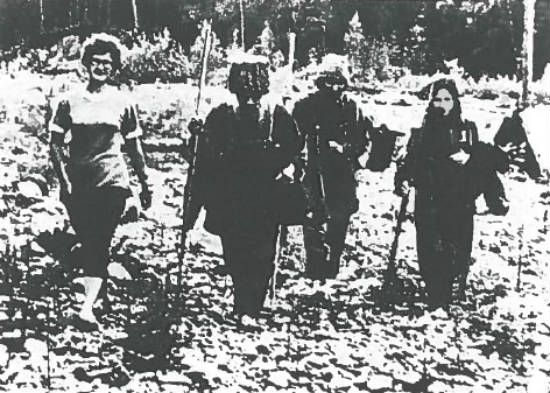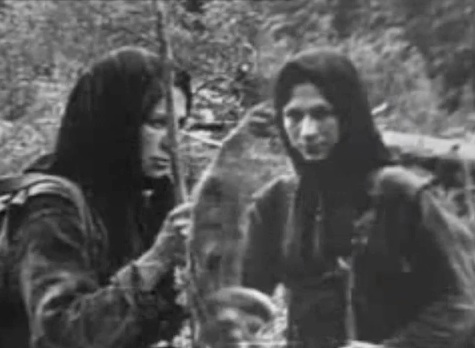
Talk about living off the grid! In 1936, Karp Lykov, a Russian of the Old Believers sect, escaped Soviet religious persecution by moving his family deep into the rugged Siberian taiga, near the border of Mongolia. They settled in a spot 150 miles from the nearest village and lived alone, cut off from the outside world until 1978. That's when a group of geologists, looking for a spot to land their helicopter, noticed what they believed to be a farm. Curious, they went to the cabin and found Lykov and his four adult children. The youngest two had never seen any person outside their own family. Over time, the geologists learned how the Lykov family survived all those years.
Isolation made survival in the wilderness close to impossible. Dependent solely on their own resources, the Lykovs struggled to replace the few things they had brought into the taiga with them. They fashioned birch-bark galoshes in place of shoes. Clothes were patched and repatched until they fell apart, then replaced with hemp cloth grown from seed.Karp Lykov, then in his 80s, knew nothing of World War II or the moon landing. But he believed the news of satellites, because he had noticed that in the 1950s, “the stars began to go quickly across the sky.” The family was amazed by television, but tried to adhere to their religious beliefs about living simply. They were very grateful for salt, however, as they had none for decades. Read the astonishing tale of the Lykov family at Past Imperfect.
The Lykovs had carried a crude spinning wheel and, incredibly, the components of a loom into the taiga with them—moving these from place to place as they gradually went further into the wilderness must have required many long and arduous journeys—but they had no technology for replacing metal. A couple of kettles served them well for many years, but when rust finally overcame them, the only replacements they could fashion came from birch bark. Since these could not be placed in a fire, it became far harder to cook. By the time the Lykovs were discovered, their staple diet was potato patties mixed with ground rye and hemp seeds.
A postscript to the story appeared in the news just last week. Here.
More:
For 40 years, this Russian family was cut off From all human contact, unaware of World War II

The sight that greeted the geologists as they entered the cabin was like something from the middle ages. Jerry-built from whatever materials came to hand, the dwelling was not much more than a burrow—"a low, soot-blackened log kennel that was as cold as a cellar," with a floor consisting of potato peel and pine-nut shells. Looking around in the dim light, the visitors saw that it consisted of a single room. It was cramped, musty and indescribably filthy, propped up by sagging joists—and, astonishingly, home to a family of five.
Led by Pismenskaya, the scientists backed hurriedly out of the hut and retreated to a spot a few yards away, where they took out some provisions and began to eat. After about half an hour, the door of the cabin creaked open, and the old man and his two daughters emerged—no longer hysterical and, though still obviously frightened, "frankly curious." Warily, the three strange figures approached and sat down with their visitors, rejecting everything that they were offered—jam, tea, bread—with a muttered, "We are not allowed that!" When Pismenskaya asked, "Have you ever eaten bread?" the old man answered: "I have. But they have not. They have never seen it." At least he was intelligible. The daughters spoke a language distorted by a lifetime of isolation. "When the sisters talked to each other, it sounded like a slow, blurred cooing."

No comments:
Post a Comment